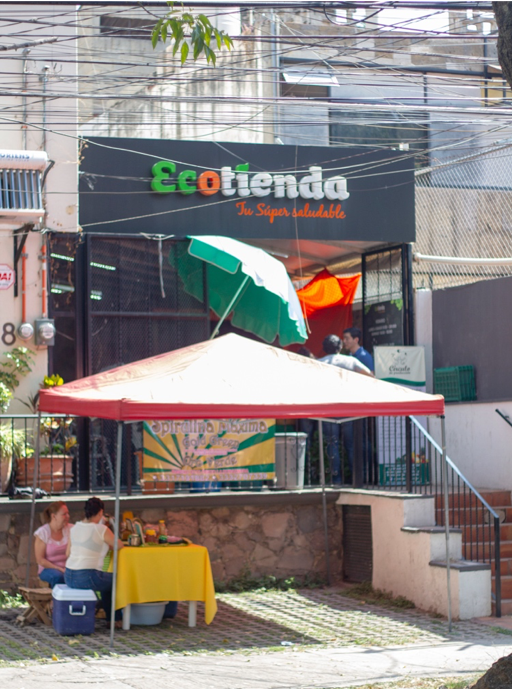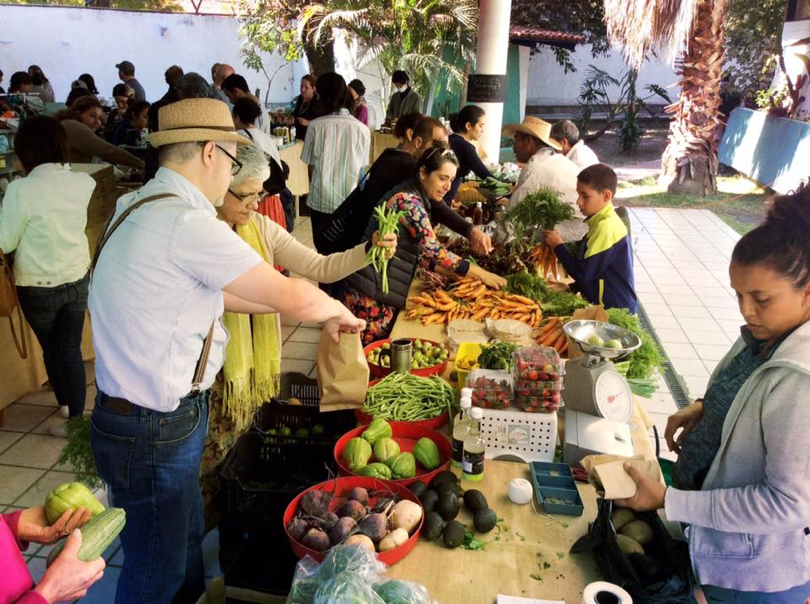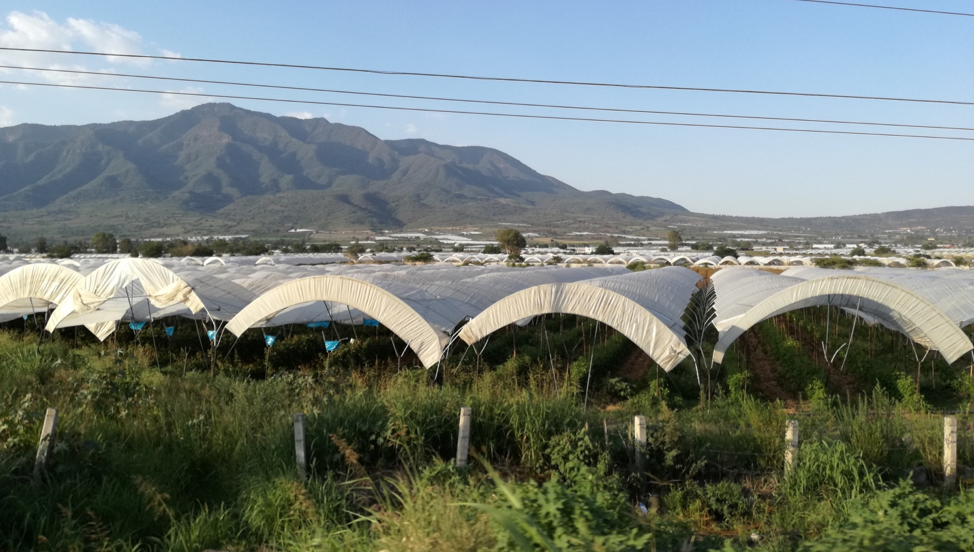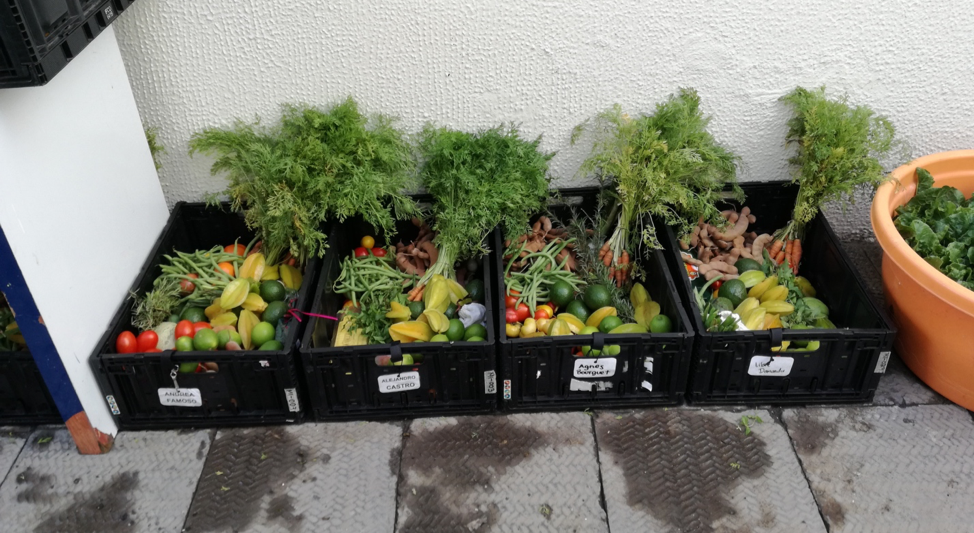Caroline Kamm 2018 Field Report
2018 CLAG Field Study Award Report:
Caroline Kamm, PhD Student, Department of Geography and Planning, University of Toronto.
Project: Mitigating Risk in Rural Development: Local Food Networks in Jalisco, Mexico
My research focuses on the experiences of producers engaged in local food networks, particularly the risk management strategies employed within these marketing arrangements. Through my research I hope to form a better understanding of how the scale and structure of agricultural markets may impact the ways that small-scale farmers experience and adapt to agricultural risks.

Círculo de Producción, the first direct-to-consumer market established in Guadalajara, is hosted every Saturday in the Ecotienda. Their partnership with the Ecotienda gives the market access to space, but it also limits the number of producers who can participate (the current space fits roughly 10 vendors).
This summer, I conducted eight weeks of field research in the state of Jalisco, located along the western coast of Mexico. I spent time in the city of Guadalajara and two neighboring towns, Ajijic and Atotonilco El Alto. Each site was selected based on the presence of an active local food initiative. In total, I was engaged with three different farmers markets, one consumer collective, and one producer cooperative. Each initiative is based, at least in part, on a commitment to health-conscious and environmentally sustainable growing practices, though the terminology used to describe production methods varies between organizations.
I approached my research using two methods of data collection. First, I used a closed-ended survey focused on risk perception, decision-making, and general attitudes toward risk. After collecting survey data, I returned to certain producers to do a second, open-ended interview. I also carried out open-ended interviews with key informants, including market coordinators, academics, representatives within wholesale markets, and one rural development practitioner. In total, I collected 20 survey responses, 10 follow-up interviews with producers, and 9 key informant interviews.

Feria de Productores, a weekly market in Guadalajara. This market relies on donated space from the Lions Club of Mexico, which allows them to host a greater number of producers.
My research indicates that participation in local marketing channels encourages on-farm diversification, in a way that other marketing structures do not. This on-farm diversification subsequently improves farmers’ perceptions of risk in a number of ways. The vast majority (85%) of participants produce and sell more than one product, typically including some combination of hortalizas(vegetable crops), grains, fruit, and in some cases processed goods. Participants indicated that a large motivation for participating in direct-to-consumer markets is the favorable price that they receive. Several participants spoke about wholesale markets as compelling farmers to specialize, either because they refuse to buy smaller quantities or because the prices are so low that farmers feel pressure to increase their yields. In direct-to-consumer markets, consumers demand a variety of products, and farmers find greater success when focusing on diversity rather than yield alone.

Recent public-private investment has led to enormous growth in the production of frutos rojos, or berries, in the municipalities outside of Guadalajara. Several local producers reference these changes in the sector as putting additional strain on common resources.
On-farm diversification impacts farmer risk perception in a number of ways. The most significant impact is in mitigating environmental risk. On-farm diversity was cited as reducing environmental risks by improving soil health, increasing the likelihood that some crops would survive harmful weather events, preventing pests, and allowing for future adaptations to changing climate. Diversification also helps farmers absorb unsold products and meet their household consumptive needs. Almost all of the participants (90%) reported self-provisioning for their household’s consumption. The most common strategies for self-provisioning were to either select out goods for the household and send surplus to market, or to use the household as a way of “absorbing” unsold crops from the market.
The funding that I received from CLAG was absolutely crucial in carrying out this research. My research required a good deal of traveling back and forth between research sites. The CLAG Field Study Award helped to cover travel expenses and the cost of housing in each site.
See the full report for more details.

Producers make deliveries to the consumer collective in the morning, and a committee of volunteers assembles baskets for each participating consumer.


















